18 Independent Dog Breeds
Adobe Stock/Thierry
Dogs are often described as man’s best friend, but that doesn’t mean that every dog prefers to constantly be at your side or in your lap. Some dogs are more reserved, seeking less attention from humans and preferring to spend some time by themselves.
While a dog’s personality isn’t defined only by breed, some breeds have a reputation for being more independent-minded. Here are some common independent dog breeds.
Key Takeaways
- Some dog breeds have a reputation for being more independent than others.
- Independent dogs may prefer their own space instead of cuddling close to you or following you around.
- Independent dog breeds still need daily care, attention, and affection, and they shouldn’t be left alone for long periods.
- Remember that every dog is an individual with their own unique personality.
What Is an Independent Dog?
An independent dog is comfortable and confident without constant interaction from a human companion, and they often do well as a single pet.
That said, independent dogs have love and loyalty to give—they just might express it differently than other dog breeds. For example, they might prefer to lie in the corner while you’re watching TV on the couch instead of cuddling up next you.
However, no dog—including independent dog breeds—should be left alone constantly or consistently, as this can lead to anxiety and behavior issues.
Every pet relies on you to fulfill their needs, so be prepared to give your dog the daily time and attention necessary for a happy, healthy, and well-adjusted pet.
Independent Dog Breeds
Here are some of the more independent dogs.
1. Chow Chow
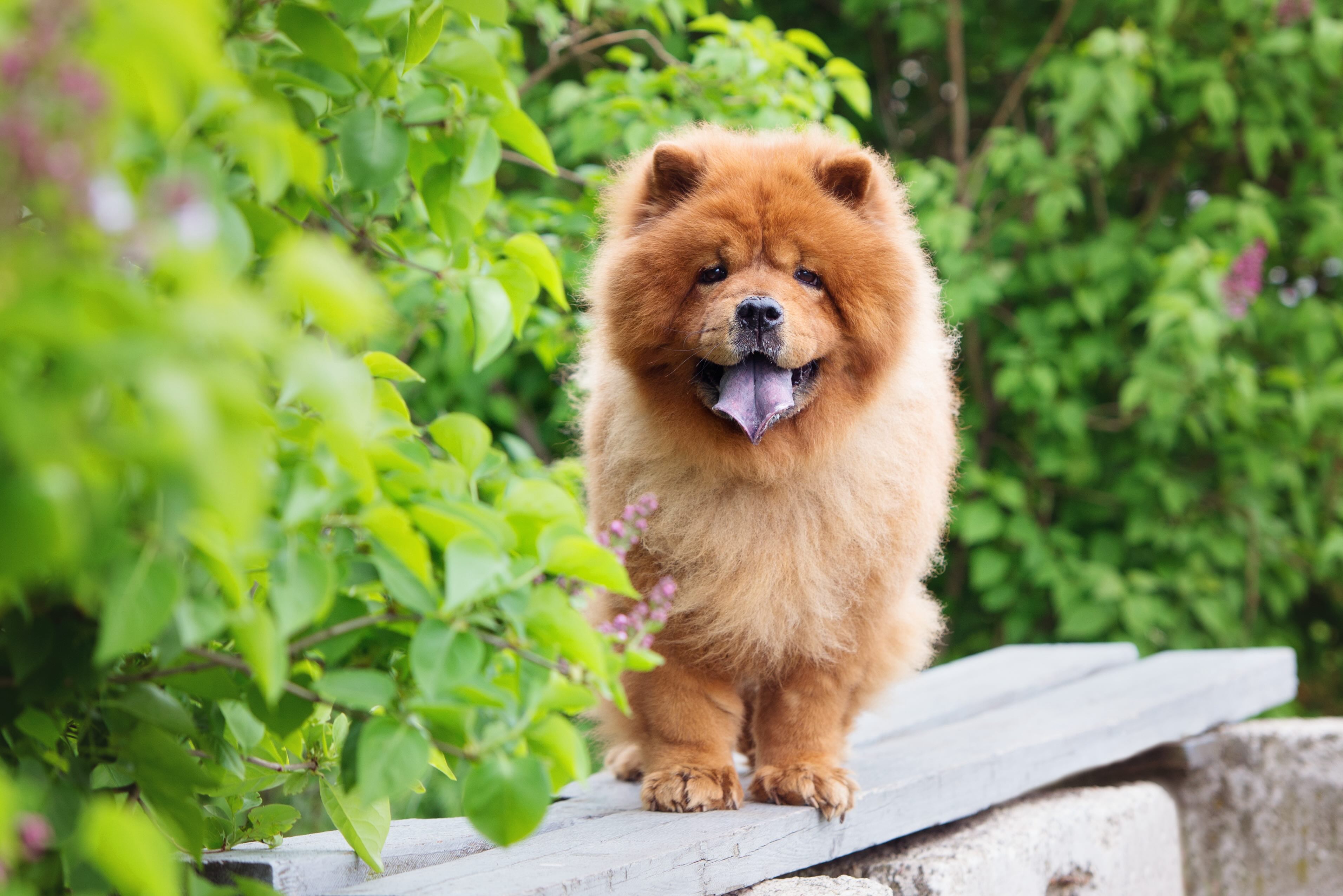
Historically, the Chow Chow worked as a guardian and hunter in ancient China. This working heritage, combined with the dogs’ calm disposition, makes the Chow Chow one of the most independent dog breeds.
Though independent, Chow Chows are loyal to their family and typically bond deeply to one person. Given their thick coat, Chow Chows may appreciate daily brushing sessions as a form of interaction.
2. Greyhound
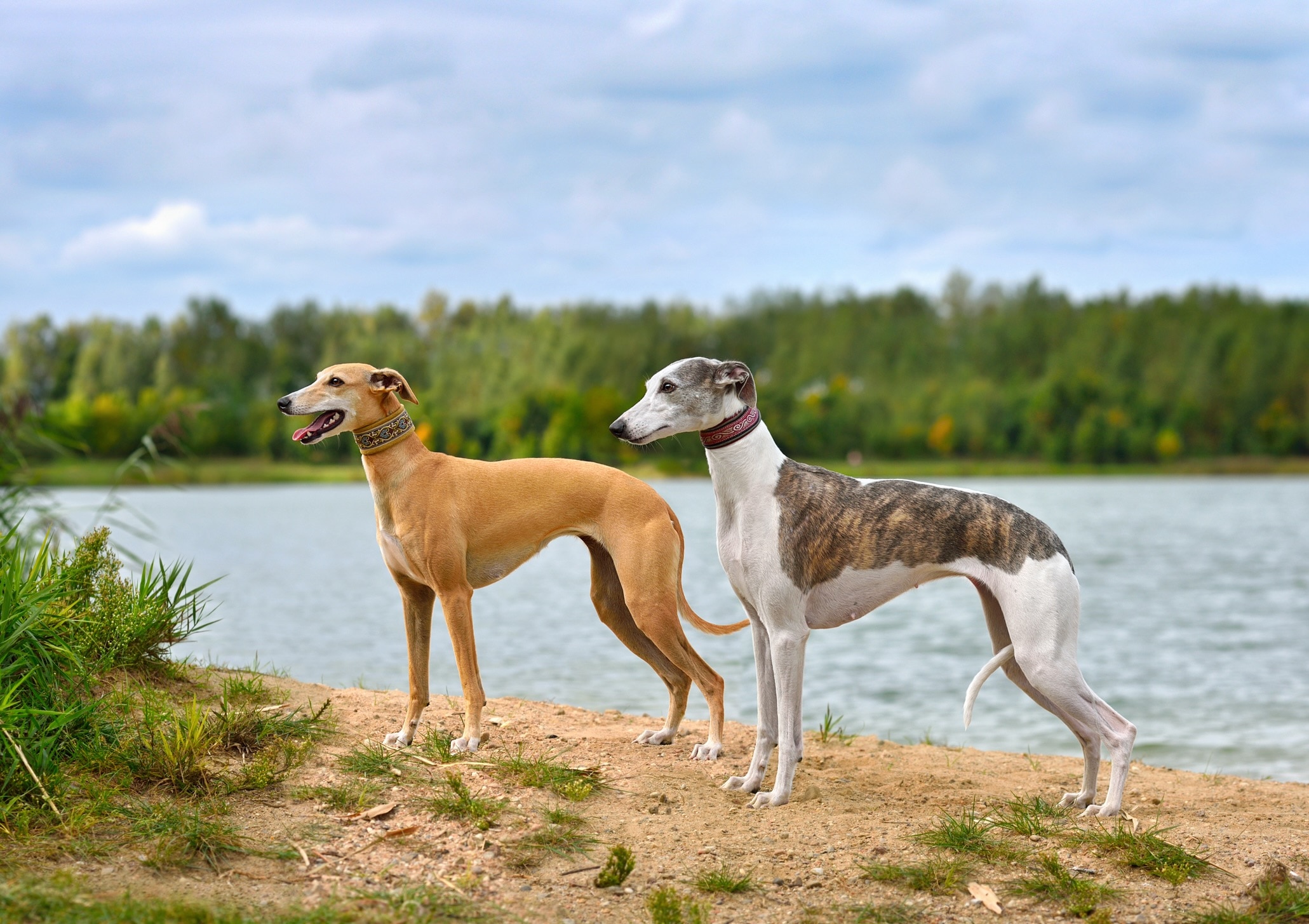
A Greyhound is best known for their running skills—as one of the fastest dog breeds, they can reach speeds of more than 40 miles per hour. But they also make calm, quiet, and independent dogs at home. Greyhounds usually prefer to have their own dog bed in a quiet place where they can retreat for some solitude as needed.
3. Shiba Inu
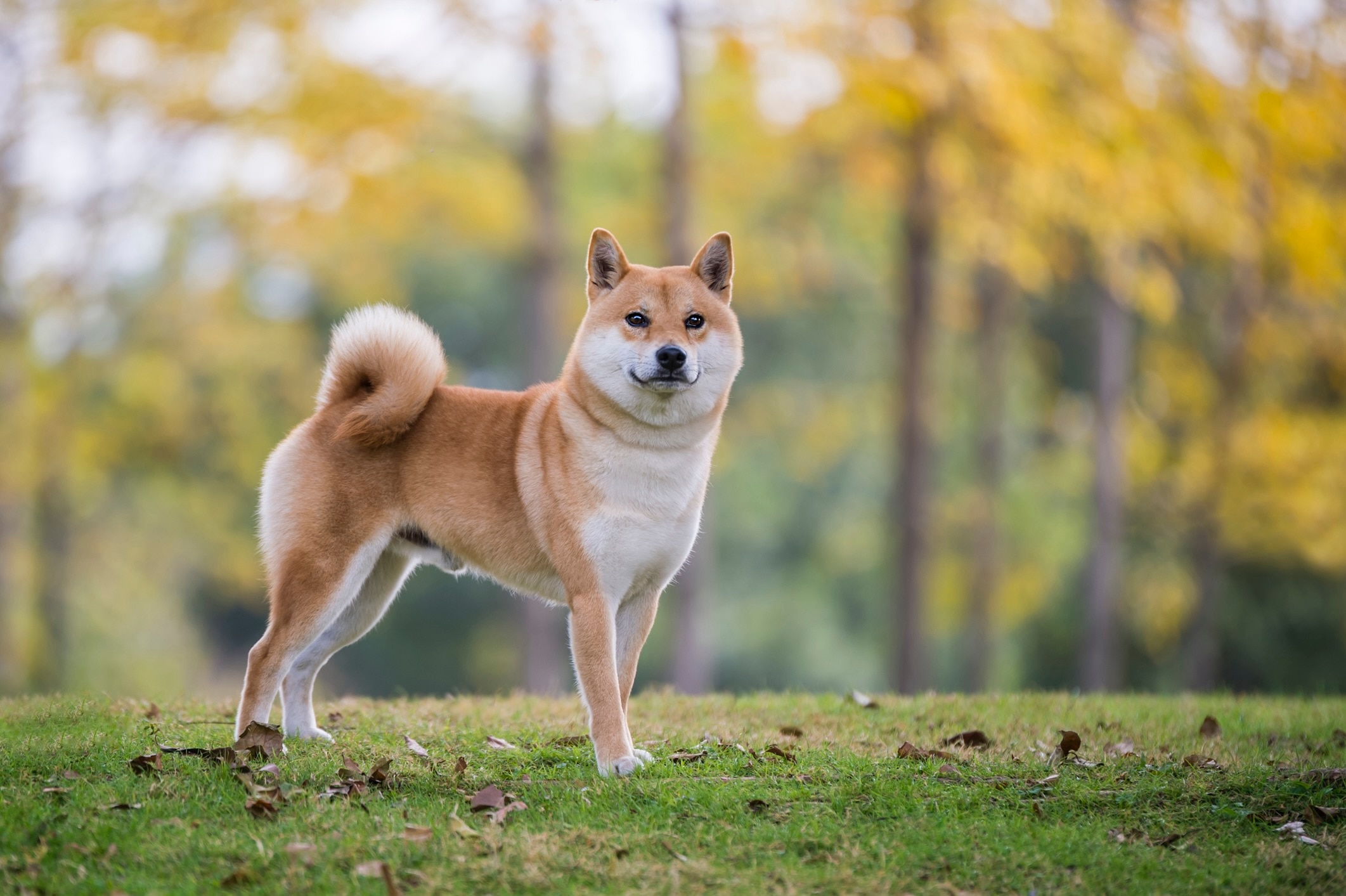
The Shiba Inu is an intelligent and strong-willed dog with an almost cat-like personality. They’re independent dogs and enjoy their own space, but they’re also high-energy and need outlets for their physical and mental energy—or else they can become anxious and overly vocal.
It’s important to invest in quality play time with a Shiba Inu, which can include playing fetch outdoors to exert that extra energy.
4. Basset Hound
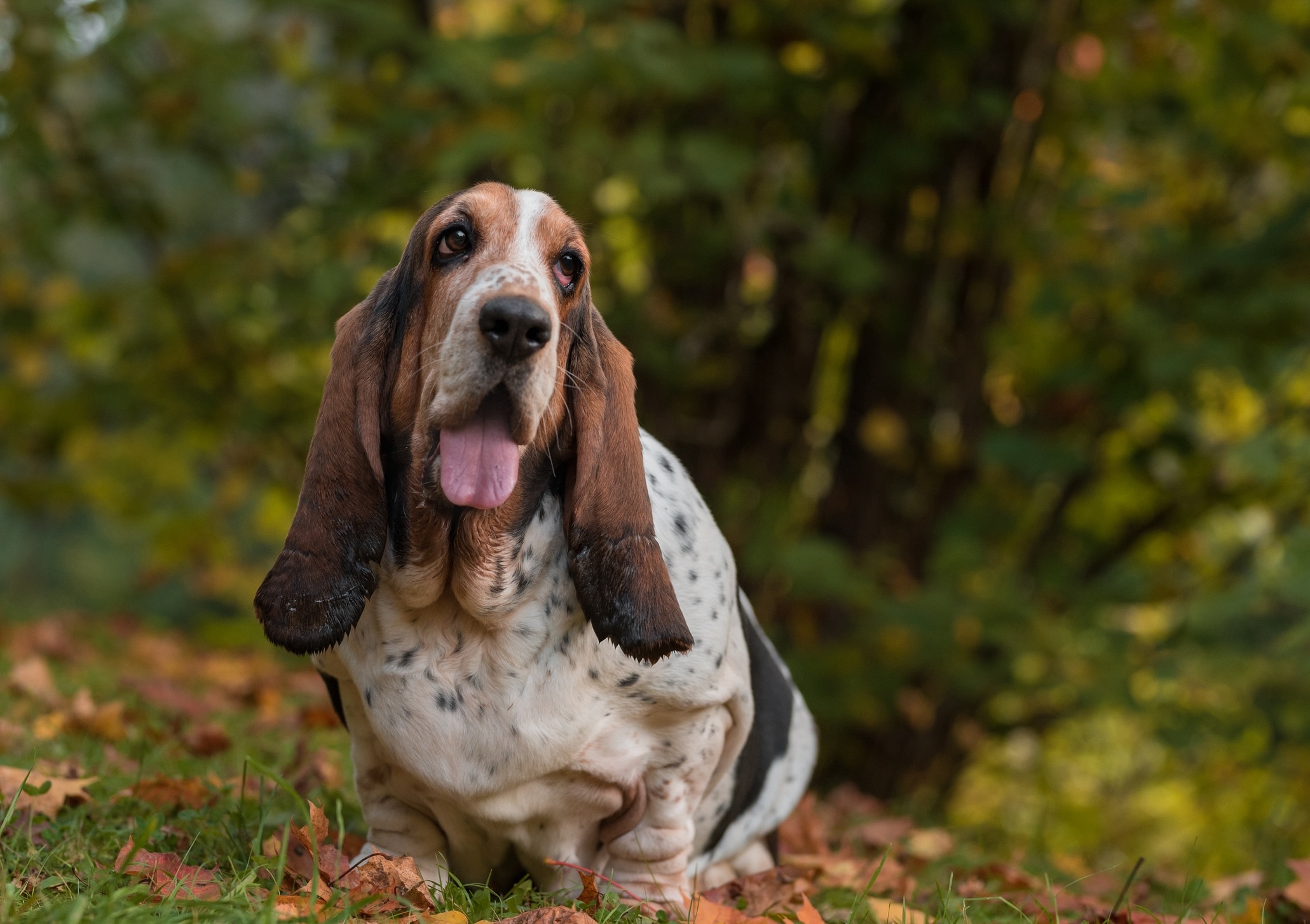
The Basset Hound is considered to be a low-energy dog breed thanks to their calm, easygoing personality that borders on being lazy. As a result, most Basset Hounds are independent dogs that don’t mind some solo time, which they’ll likely choose to spend napping.
5. Chinese Shar-Pei
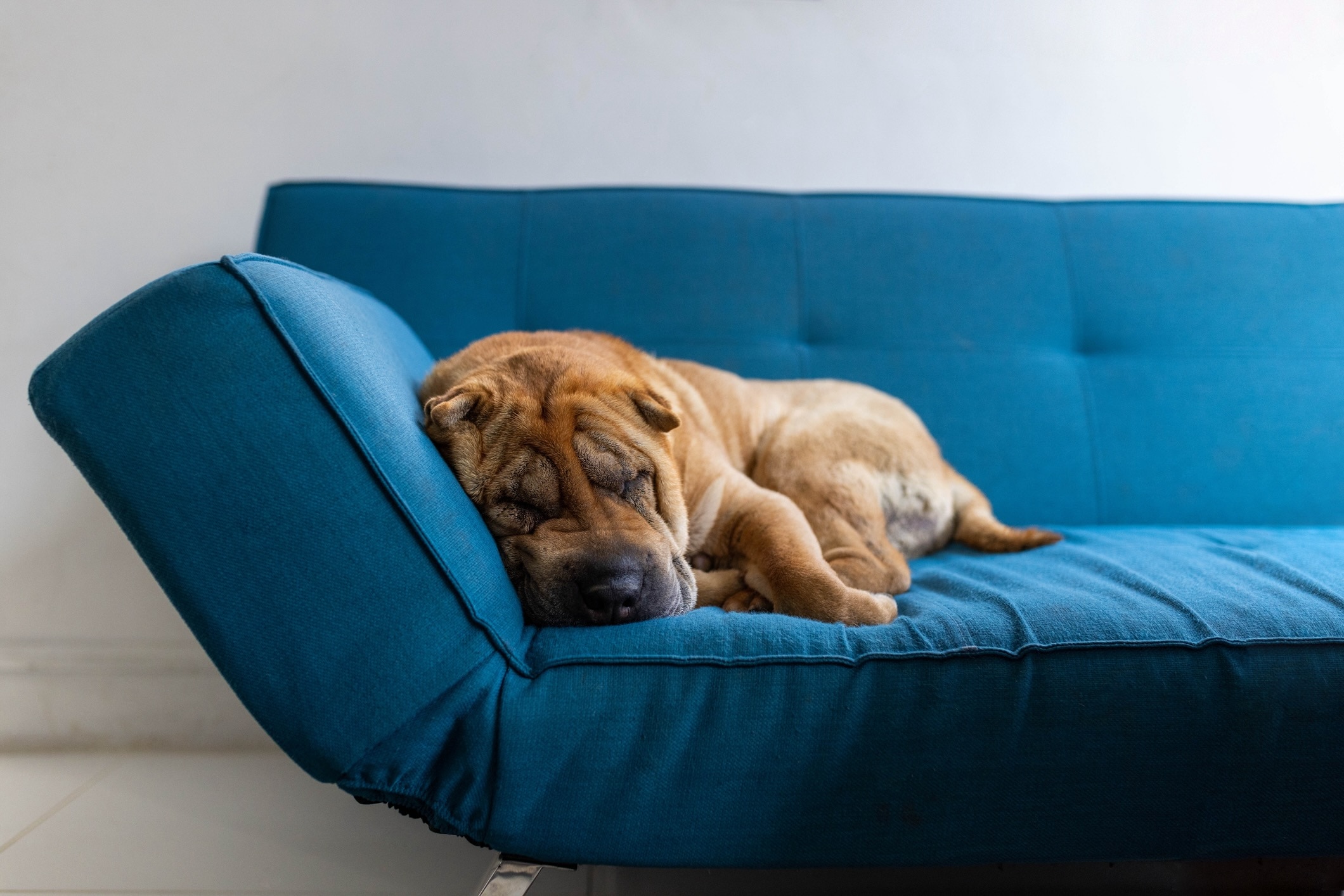
Chinese Shar-Pei dogs are another breed originally bred for hunting and guarding, giving them an independent personality that still shows through today. Early training and socializing this breed is important so they are confident and comfortable no matter the situation.
6. Irish Wolfhound
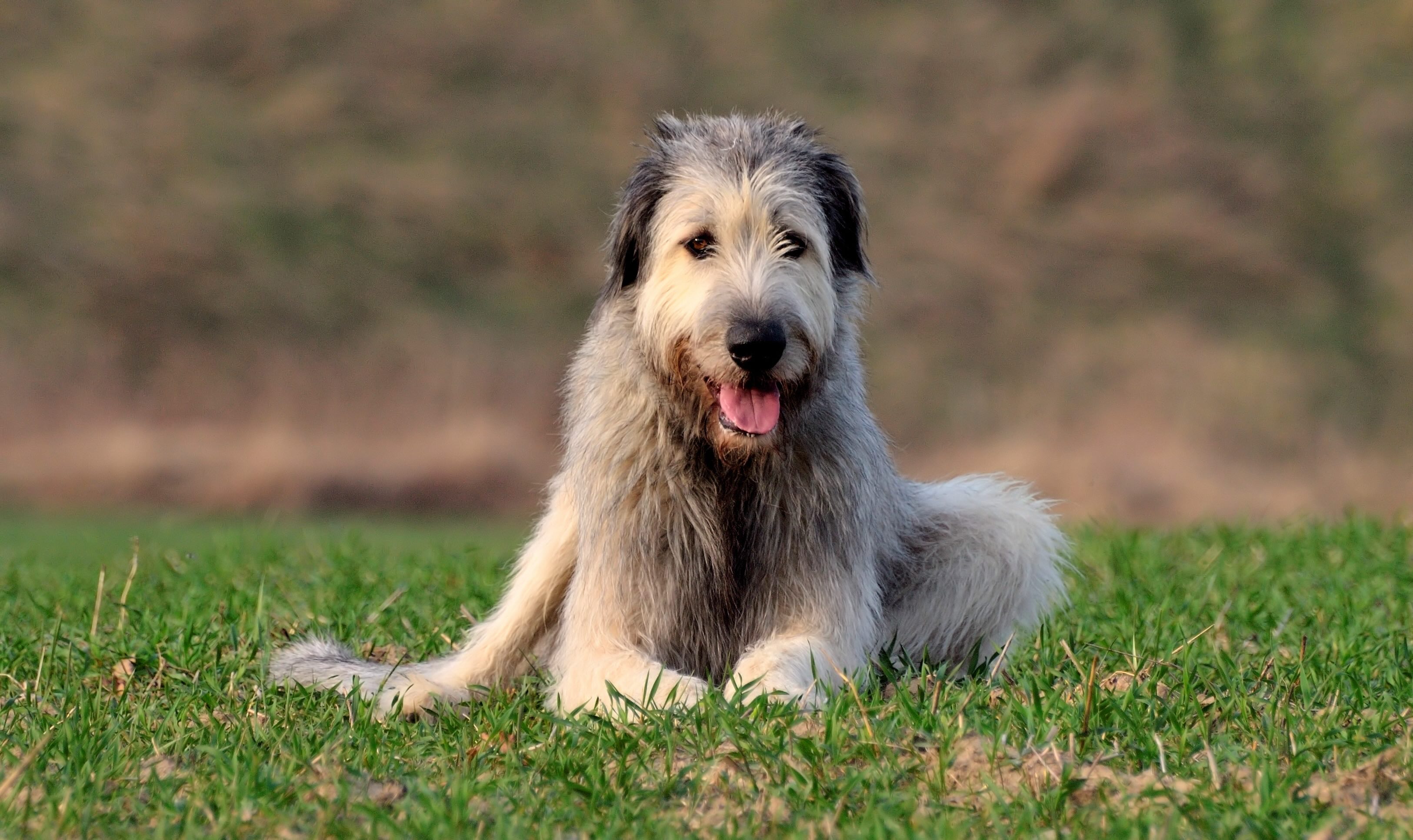
The Irish Wolfhound has a calm temperament that makes the dog adaptable to many situations and a good pick for those looking for a large, independent dog breed.
Just don’t overlook the size of this giant dog—Irish Wolfhounds usually weigh more than 100 pounds and are 3 feet tall at the shoulder, so they aren’t the best choice if you have limited space.
7. Central Asian Shepherd Dog
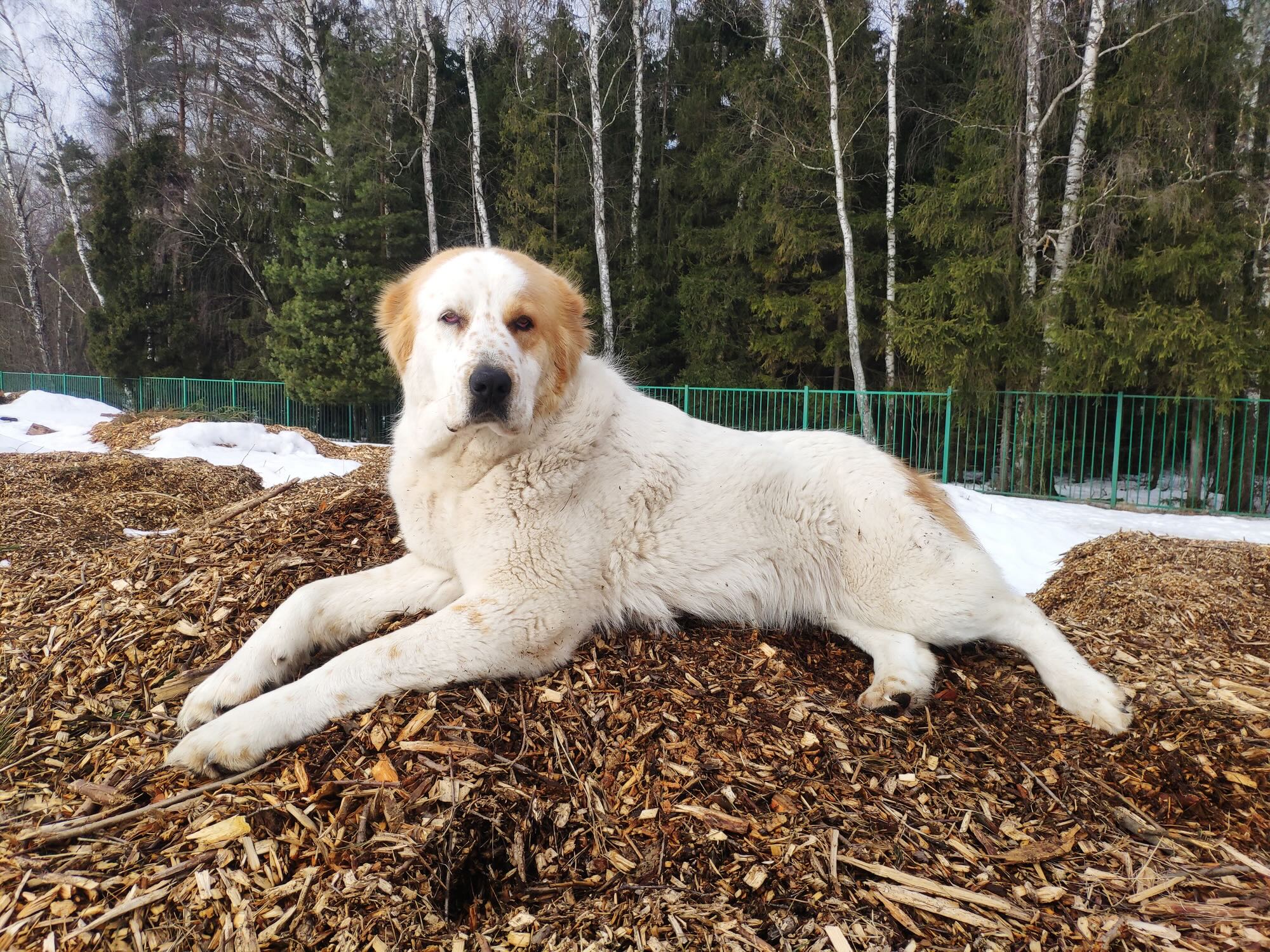
Thanks to strong working instincts, the Central Asian Shepherd has an independent personality. These dogs thrive on having a job to do and are loyal and affectionate toward their close family members.
To keep their active brain in motion even when they’re stuck indoors, consider investing in a doggy puzzle game to satisfy that worker dog drive.
8. Jindo
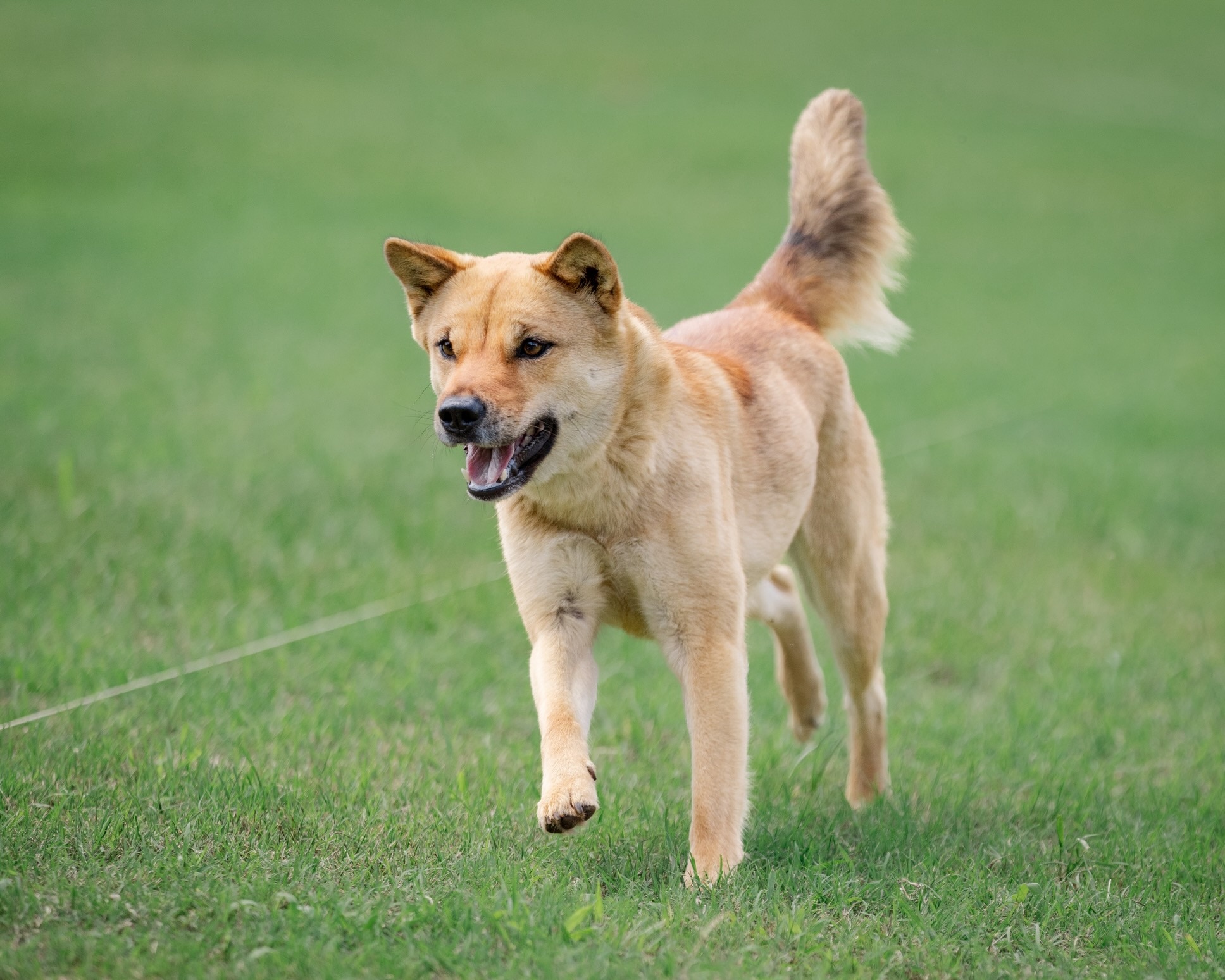
A Jindo is a medium-sized dog breed that originated in Korea as a hunting dog. Smart but reserved, the Jindo does best with experienced pet parents who can dedicate themselves to training and socializing so their dog is comfortable in new situations.
9. Basenji
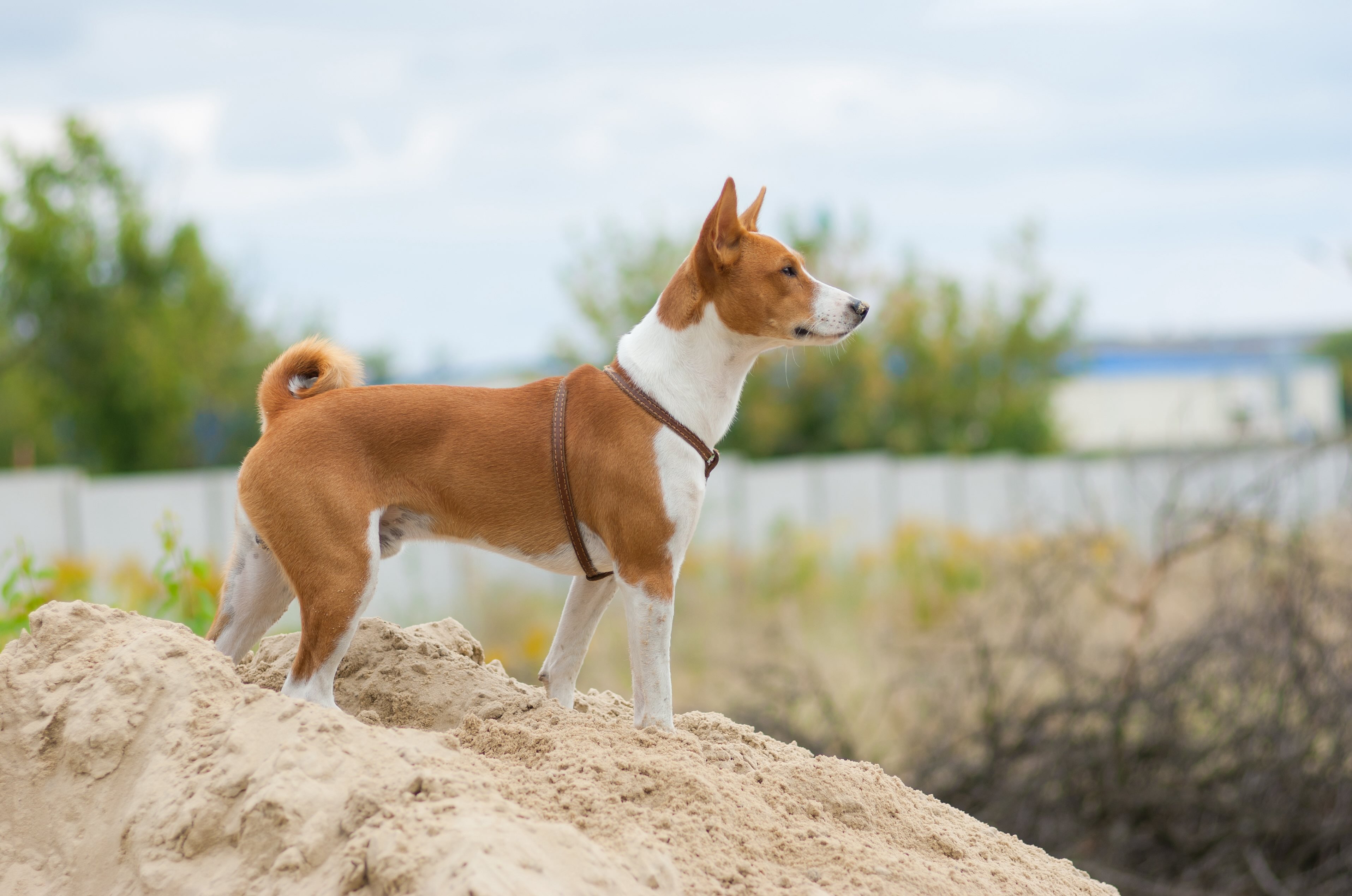
The independent Basenji is notorious for being quiet—they’re often referred to as “the barkless dog.” These medium-sized pups are frequently described as having a catlike personality because of their aloof temperament, reserved nature, and tendency to groom themselves.
10. Akita
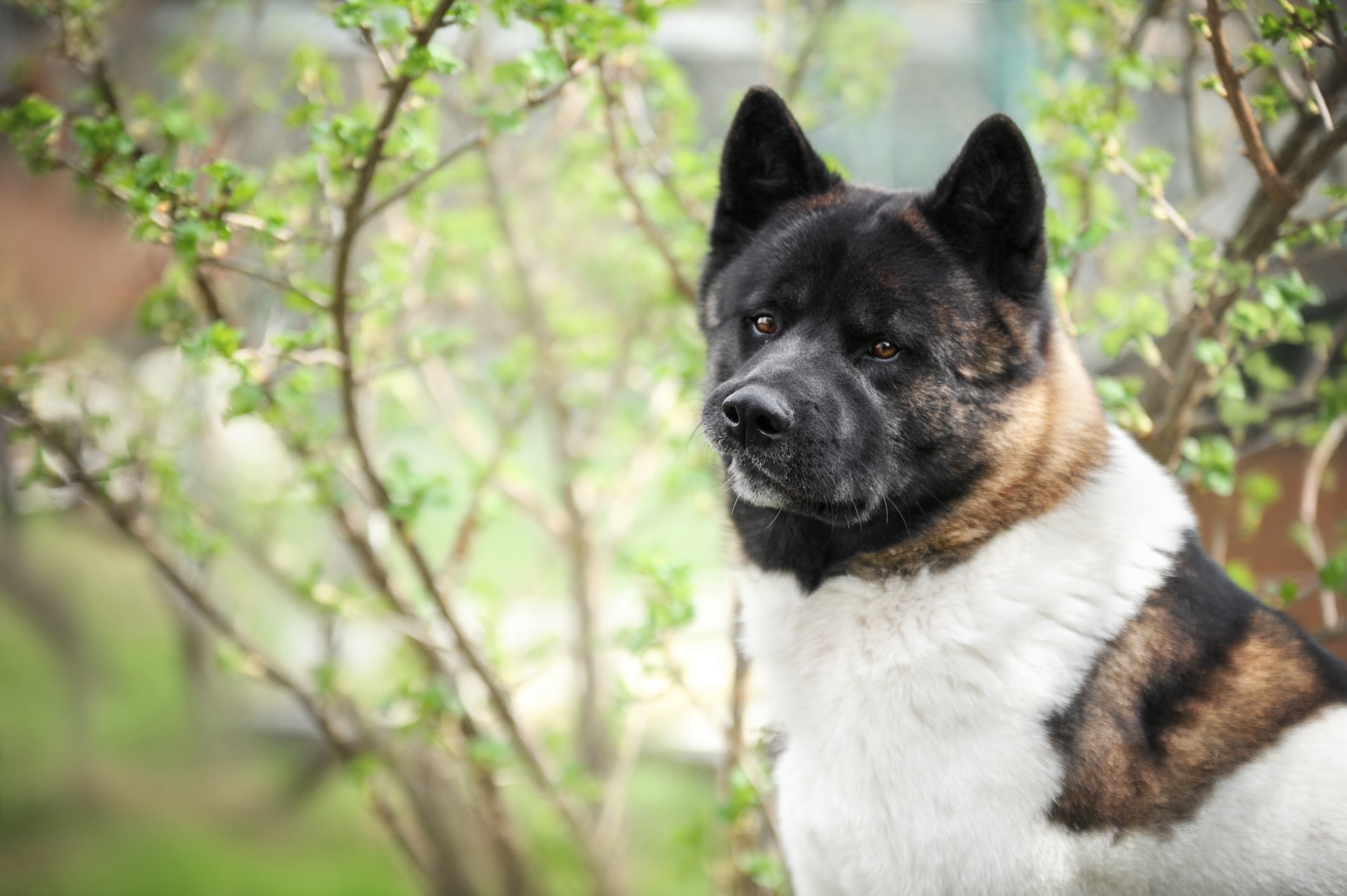
An Akita has a strong but independent personality. While they form tight-knit bonds with their human family members, Akitas are typically reserved or even uncomfortable around people they don’t know.
Early and consistent socialization is important for this breed, which does best with experienced pet parents.
11. Afghan Hound
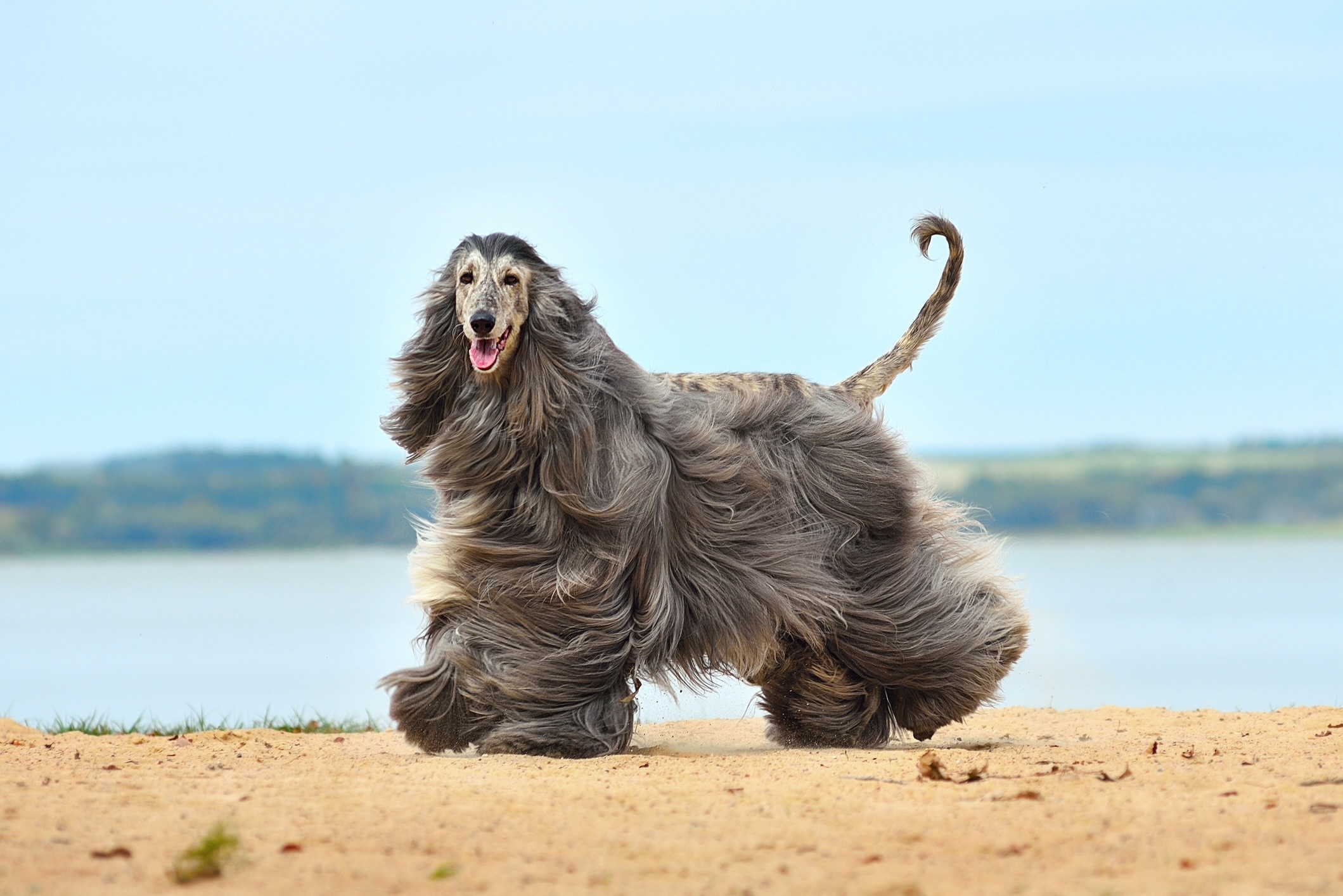
Afghan Hounds are generally independent dogs that have a reserved personality. With their family members, an Afghan Hound shows affection. But toward strangers, the breed can be rather aloof. Always make sure to introduce your Afghan Hound to new humans appropriately.
12. Great Pyrenees
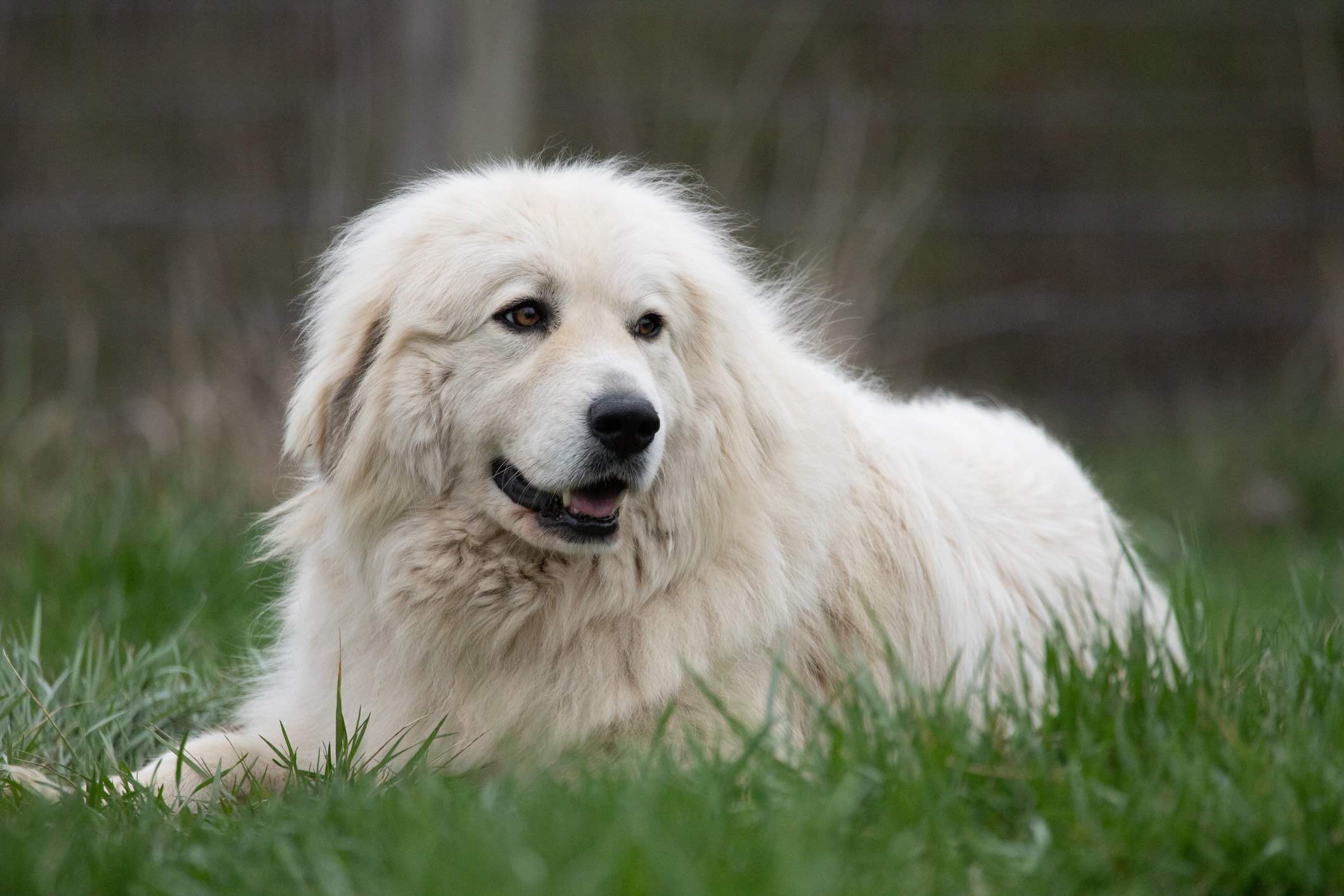
As historic livestock guardians, the Great Pyrenees was bred for the solitary job of watching over their flock and protecting them from predators. But at home, Great Pyrenees are calm and gentle dogs that do well with children and other animals.
Because Great Pyrenees love having a job to do, this is another breed that benefits from a dog puzzle to help keep their mind active—even when there is no flock to look after.
13. Standard Poodle
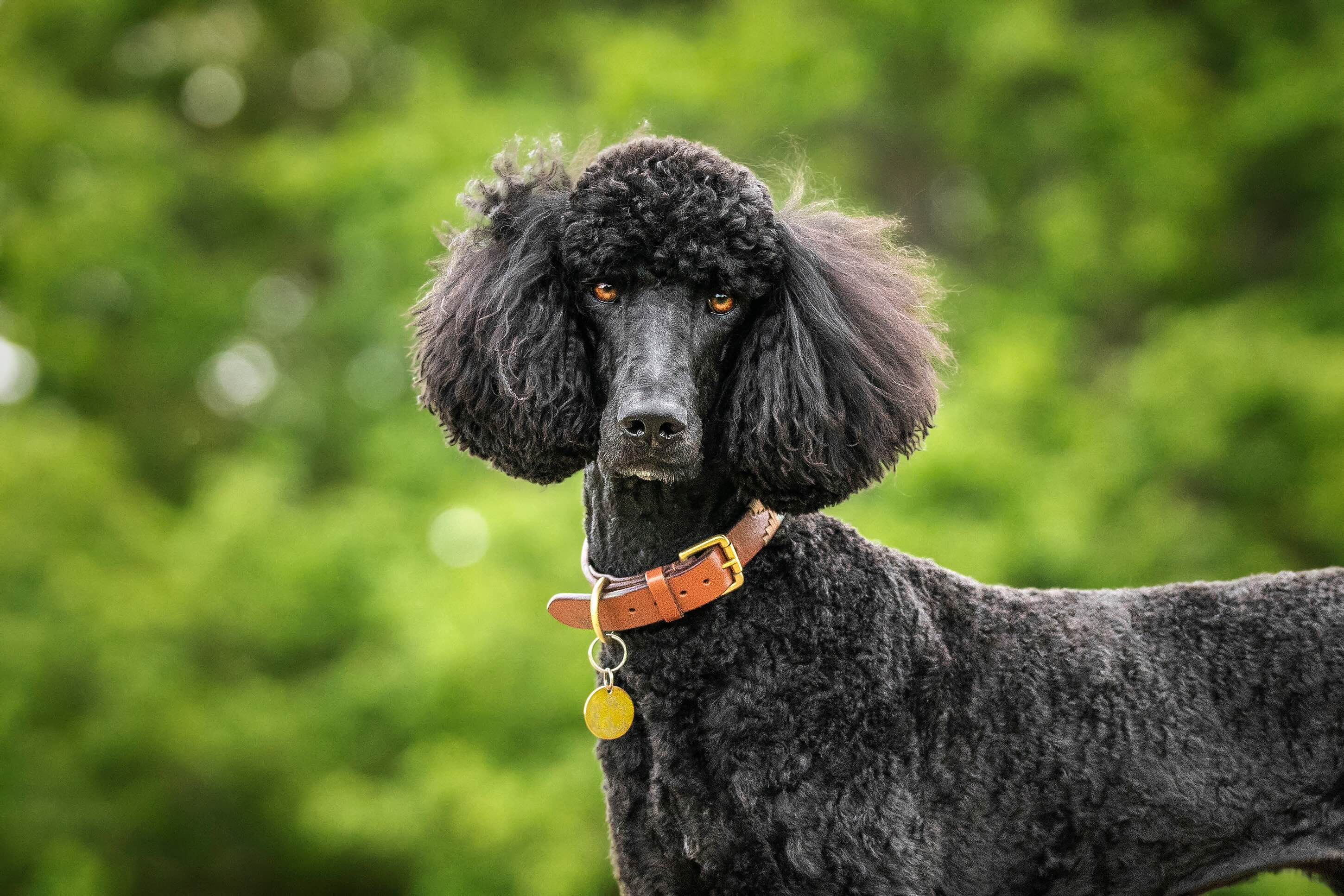
Sometimes compared to a cat (although much larger), a Standard Poodle will often choose when and how they want to interact with you.
But don’t leave a Poodle to their own devices for too long—these high-energy, smart dogs need a job to do, so make consistent exercise and training part of your dog’s daily routine.
14. English Bulldog
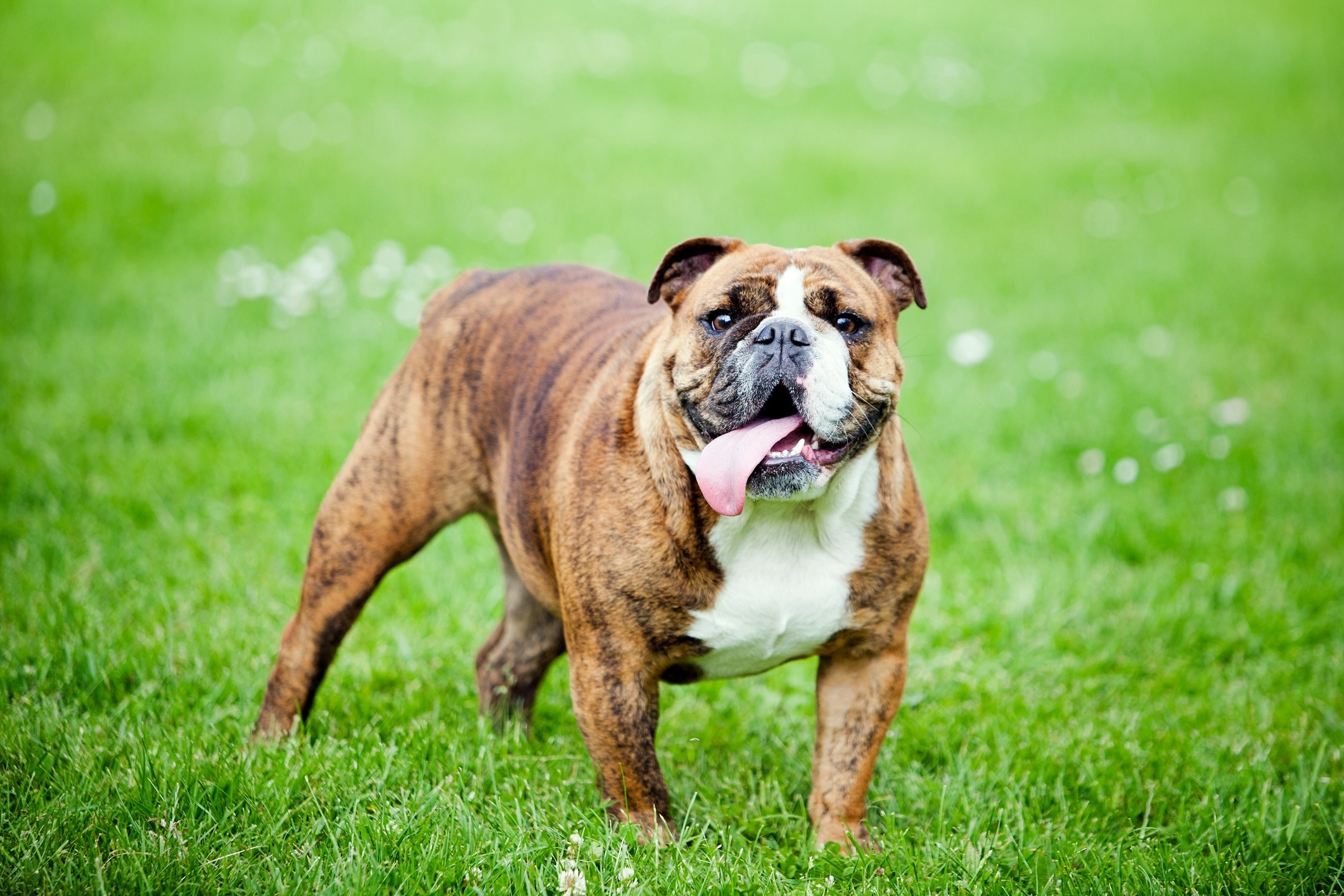
English Bulldogs aren’t known for being overly demanding of their pet parent’s time and attention. These independent dogs have a docile demeanor and are rather low-energy, which makes them content to sleep through your absence for a few hours.
15. Chinese Crested
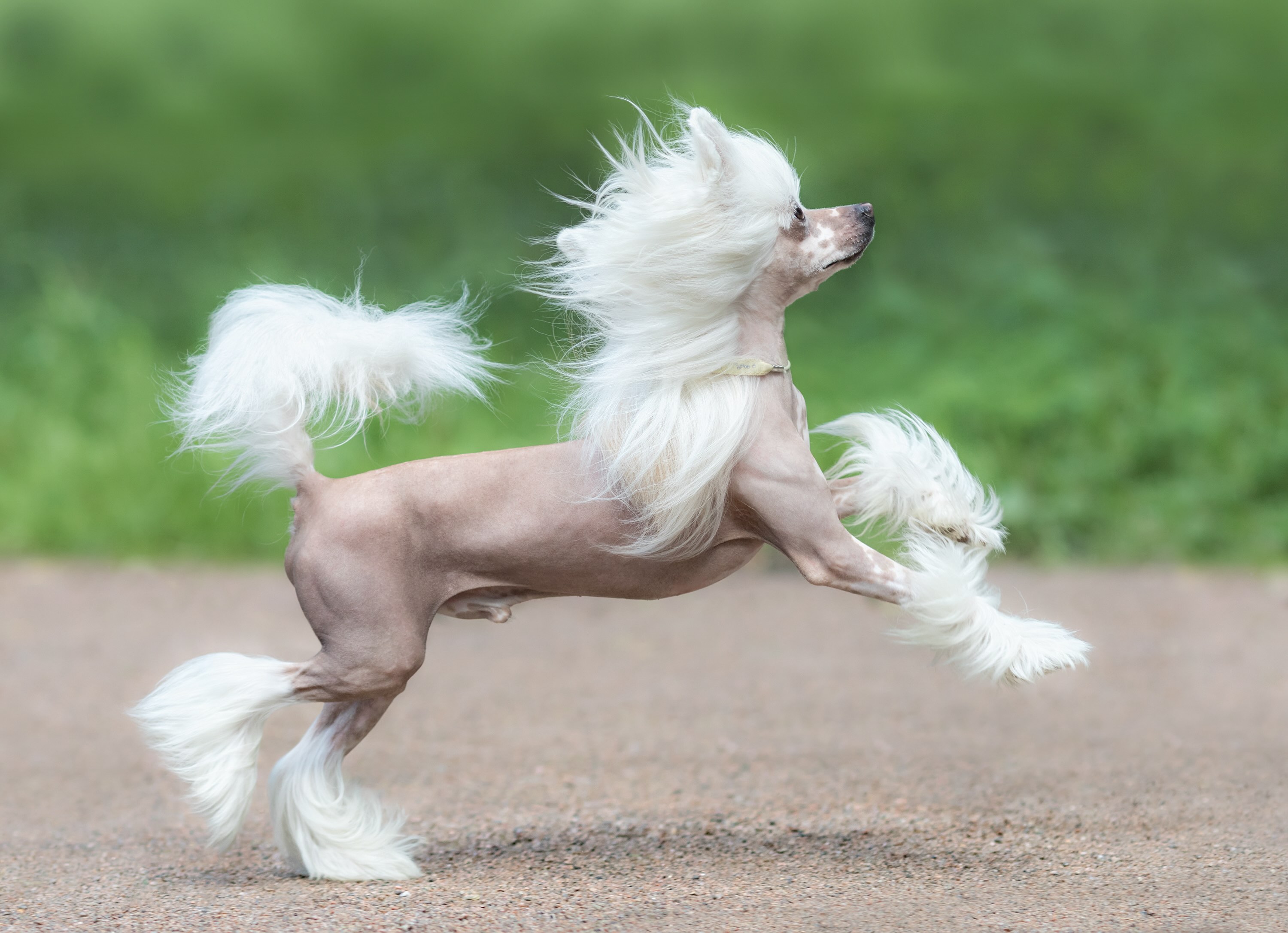
The Chinese Crested is another dog breed frequently described as having a cat-like personality. In this case, it’s because of the dog’s tendency to perch in high places where they have a view of the activity inside or outside the home—even if they’re not participating in the action.
Although these dogs tend to be very affectionate with their family, they are more aloof to strangers.
16. Tibetan Mastiff
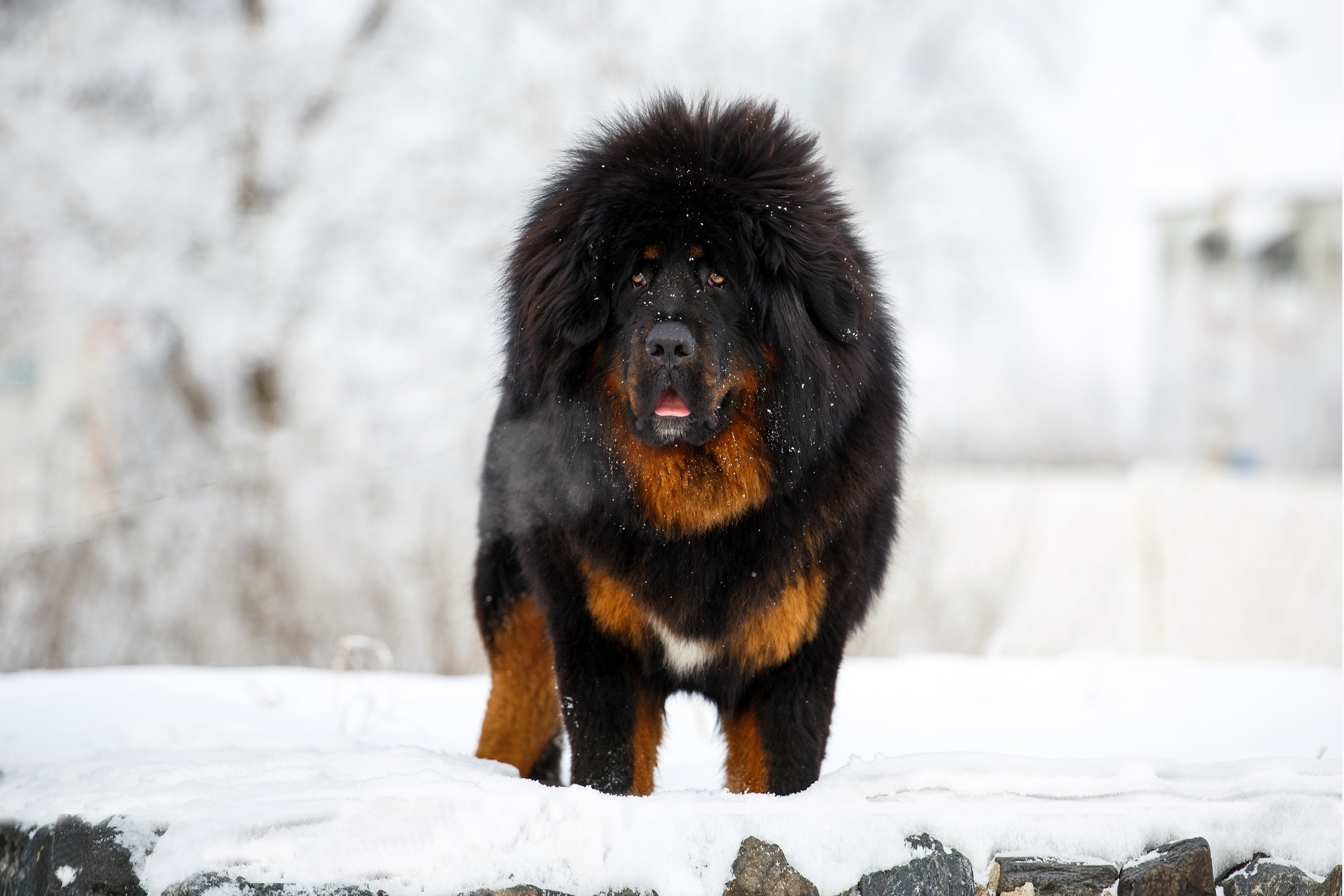
The massive and fluffy Tibetan Mastiff is big and strong-willed, so early training for this independent dog breed is important. However, they are well-known for being loyal and calm with family members and excel when given a job for mental stimulation.
17. Great Dane
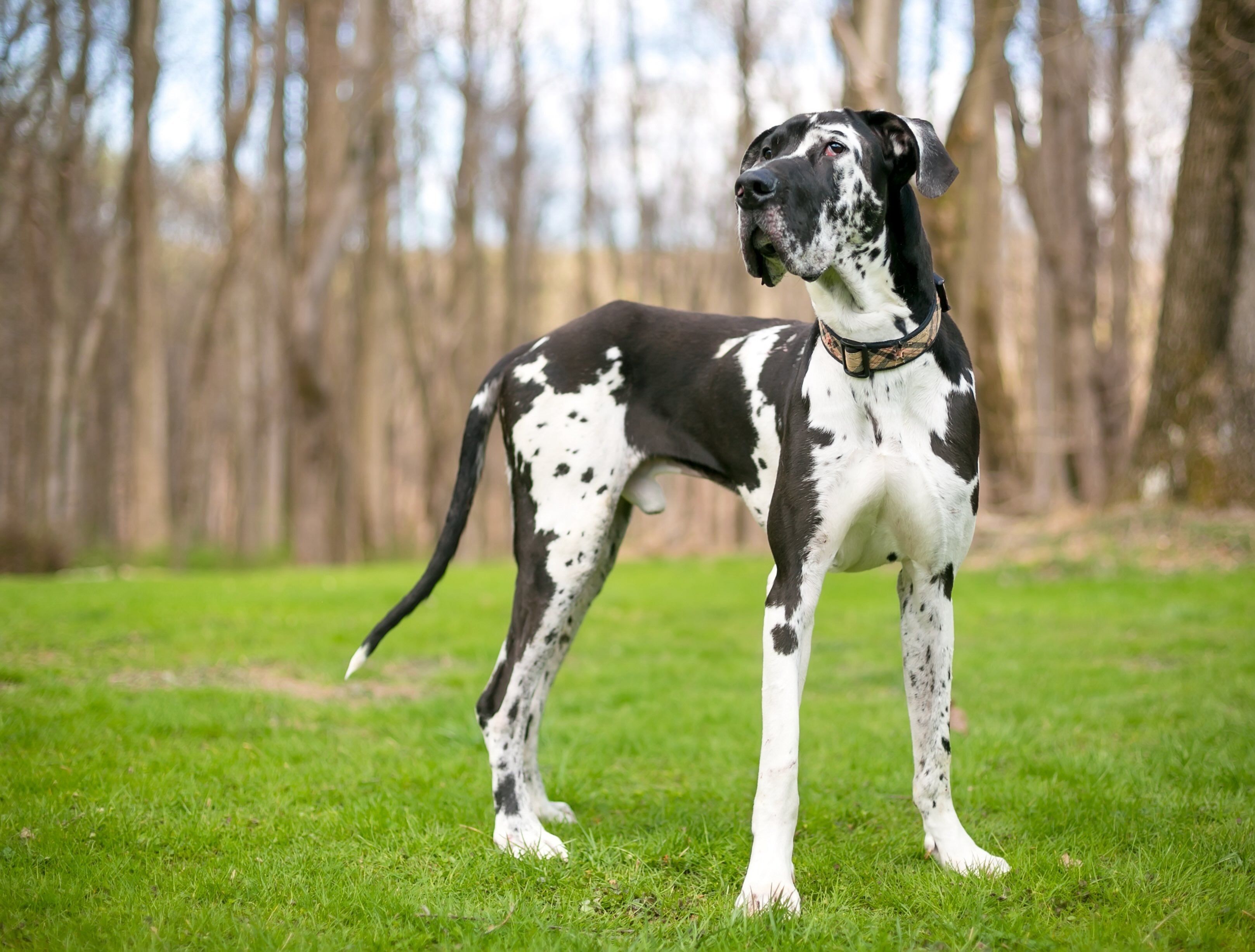
The Great Dane was bred to hunt large game and guard estates, so these dogs are comfortable and confident when working alone. This independent dog breed is known for having a calm disposition but can become timid if not socialized properly.
18. Karelian Bear Dog
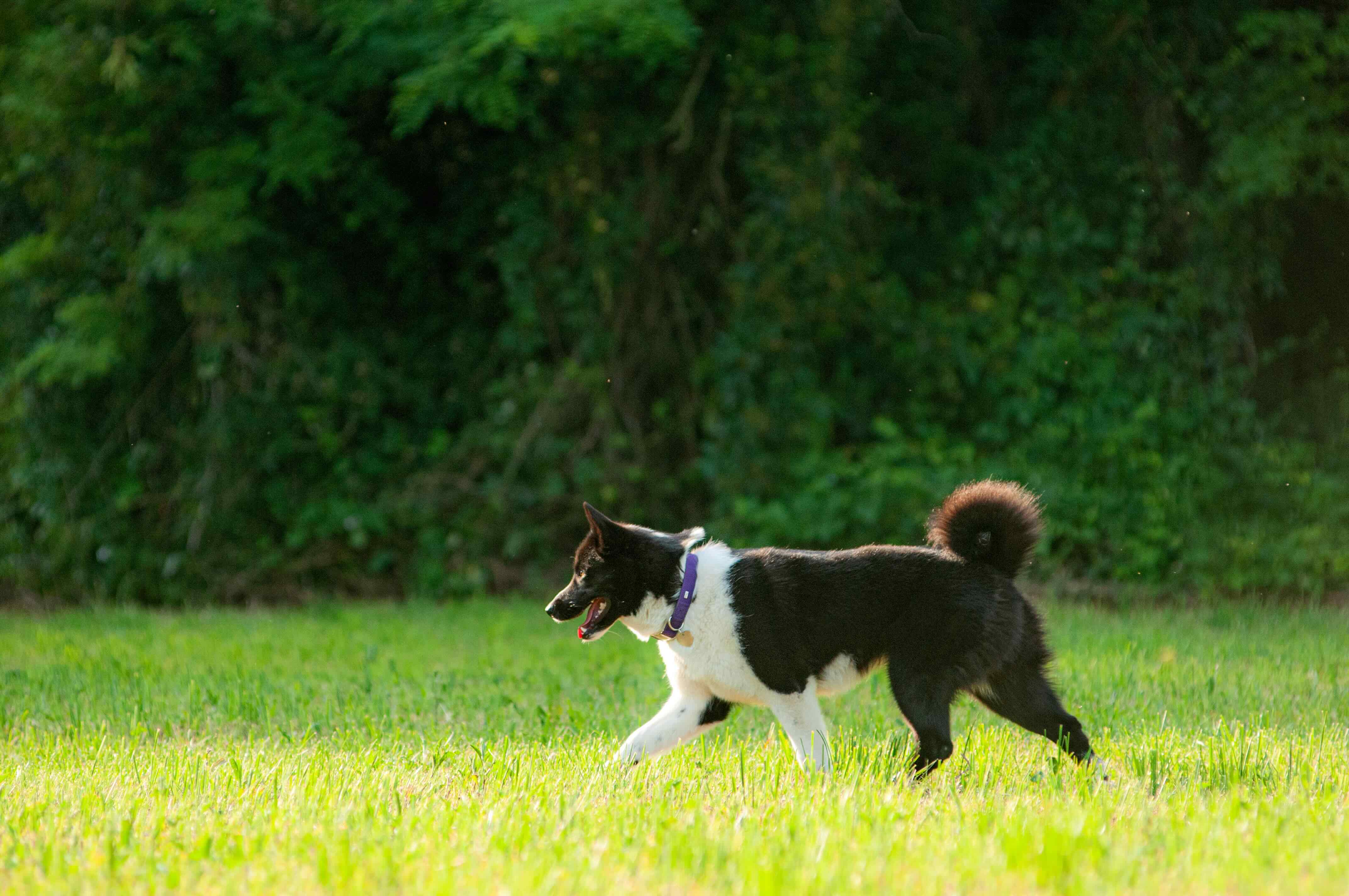
Karelian Bear Dogs were bred to hunt and do best in homes with experienced pet parents who are prepared to handle a dog with a strong prey drive.
These dogs aren’t particularly affectionate, even with the people they’re close to, but they have a strong work ethic and make an active partner for activities like running, hiking, and hunting.
